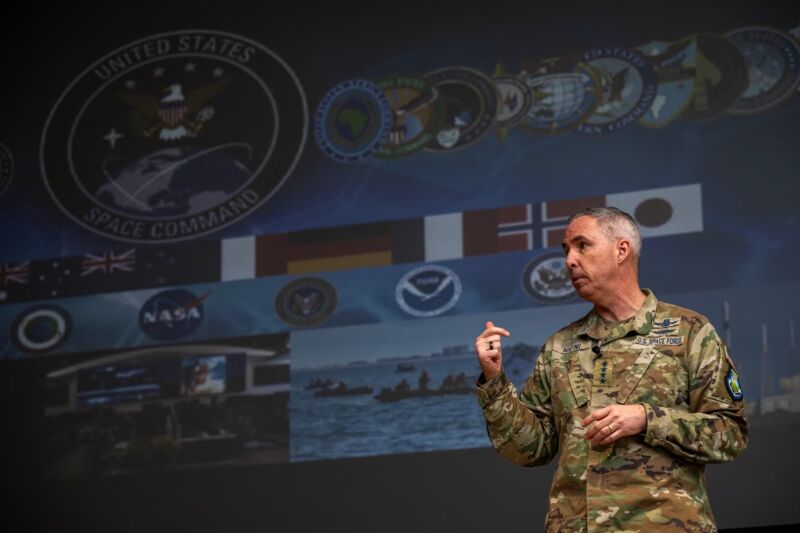
The head of US Space Command said Wednesday he would like to see more transparency from the Chinese government on space debris, especially as one of China’s newer rockets has shown a propensity for breaking apart and littering low-Earth orbit with hundreds of pieces of space junk.
Gen. Stephen Whiting, commander of US Space Command, said he’s observed some improvement in the dialogue between US and Chinese military officials this year. But the disintegration of the upper stage from a Long March 6A rocket earlier this month showed China could do more to prevent the creation of space debris, and communicate openly about it when it happens.
The Chinese government acknowledged the breakup of the Long March 6A rocket’s upper stage in a statement by its Ministry of Foreign Affairs on August 14, more than a week after the rocket’s launch August 6 with the first batch of 18 Internet satellites for a megaconstellation of thousands of spacecraft analogous to SpaceX’s Starlink network.
Space Command reported it detected more than 300 objects associated with the breakup of the upper stage in orbit, and LeoLabs, a commercial space situational awareness company, said its radars detected at least 700 objects attributed to the Chinese rocket.
“I hope the next time there’s a rocket like that, that leaves a lot of debris, that it’s not our sensors that are the first to detect that, but we’re getting communications to help us understand that, just like we communicate with others,” Whiting said at an event hosted by the Mitchell Institute marking the fifth anniversary of the reestablishment of Space Command.
Whiting said he didn’t have any technical details about why the Long March 6A rocket’s upper stage broke apart, but it happened after the rocket deployed all of its payloads. “They had already released the satellites at that point, and it seems like the mission was overall successful, but all this debris gets left in orbit,” he said. “We certainly don’t want to see that kind of debris.”
Due regard
The Space Force’s 18th Space Defense Squadron, located at Vandenberg Space Force Base in California, is responsible for tracking objects in Earth orbit, maintaining a catalog of all satellites and space junk, and monitoring for potential collisions between spacecraft or debris. Space Command regularly issues warnings of conjunctions, or close approaches, between objects to commercial companies and foreign governments.
“For decades now, the United States has so cared about the space domain that we have made available the vast majority of tracking data that we have, for free, for the world,” Whiting said. “Every day, we screen every active satellite against all that debris, and we provide notifications out to everyone, including the Chinese and Russians.
“People sometimes ask, ‘Well, why do you do that?’ Well, it’s because we don’t want satellites to run into pieces of debris and create more debris. So we think it’s really important, and we have a set of responsible behaviors that we follow each and every day. We provide these notifications to the Chinese,” Whiting said.
The Commerce Department plans to take over some of the military’s role in space traffic management, but Space Command will maintain its own catalog and will remain responsible for working with foreign militaries on space debris matters, according to Whiting.

